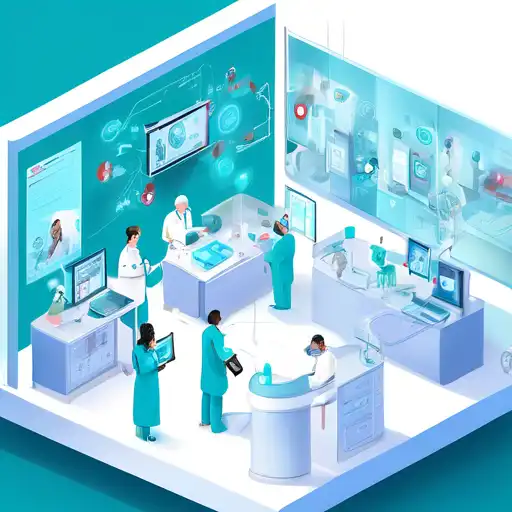The Revolutionary Role of IoT in Healthcare
The Internet of Things (IoT) is revolutionizing healthcare services by enabling smarter, more efficient, and personalized patient care. From remote monitoring to advanced diagnostics, IoT technologies are paving the way for a future where healthcare is more accessible and effective than ever before.
Remote Patient Monitoring
One of the most significant contributions of IoT in healthcare is remote patient monitoring. Wearable devices and sensors can now track vital signs such as heart rate, blood pressure, and glucose levels in real-time, allowing healthcare providers to monitor patients outside of traditional clinical settings. This not only improves patient outcomes but also reduces the need for hospital readmissions.
Enhanced Drug Management
IoT is also transforming drug management through smart pill bottles and dispensers that remind patients to take their medication on time. These devices can alert healthcare providers if a dose is missed, ensuring that treatment plans are followed accurately.
Improved Diagnostic Tools
Advanced diagnostic tools powered by IoT are enabling earlier and more accurate diagnoses. For example, connected imaging devices can instantly share results with specialists around the world, facilitating quicker consultations and treatment decisions.
Streamlined Operations
IoT technologies are streamlining hospital operations by optimizing resource allocation and reducing wait times. Smart beds, for instance, can detect when they are occupied and alert staff when they need to be cleaned or maintained, improving efficiency and patient satisfaction.
Challenges and Considerations
Despite its benefits, the integration of IoT in healthcare comes with challenges, including data security and privacy concerns. Ensuring the protection of sensitive patient information is paramount as healthcare providers adopt these technologies.
The Future of IoT in Healthcare
The potential of IoT in healthcare is boundless. With ongoing advancements in technology, we can expect even more innovative solutions that will further enhance patient care and operational efficiency. The key to success lies in addressing the challenges head-on and fostering collaboration between technologists and healthcare professionals.
For more insights into how technology is shaping the future of healthcare, explore our articles on digital transformation in healthcare and the future of remote patient monitoring.
